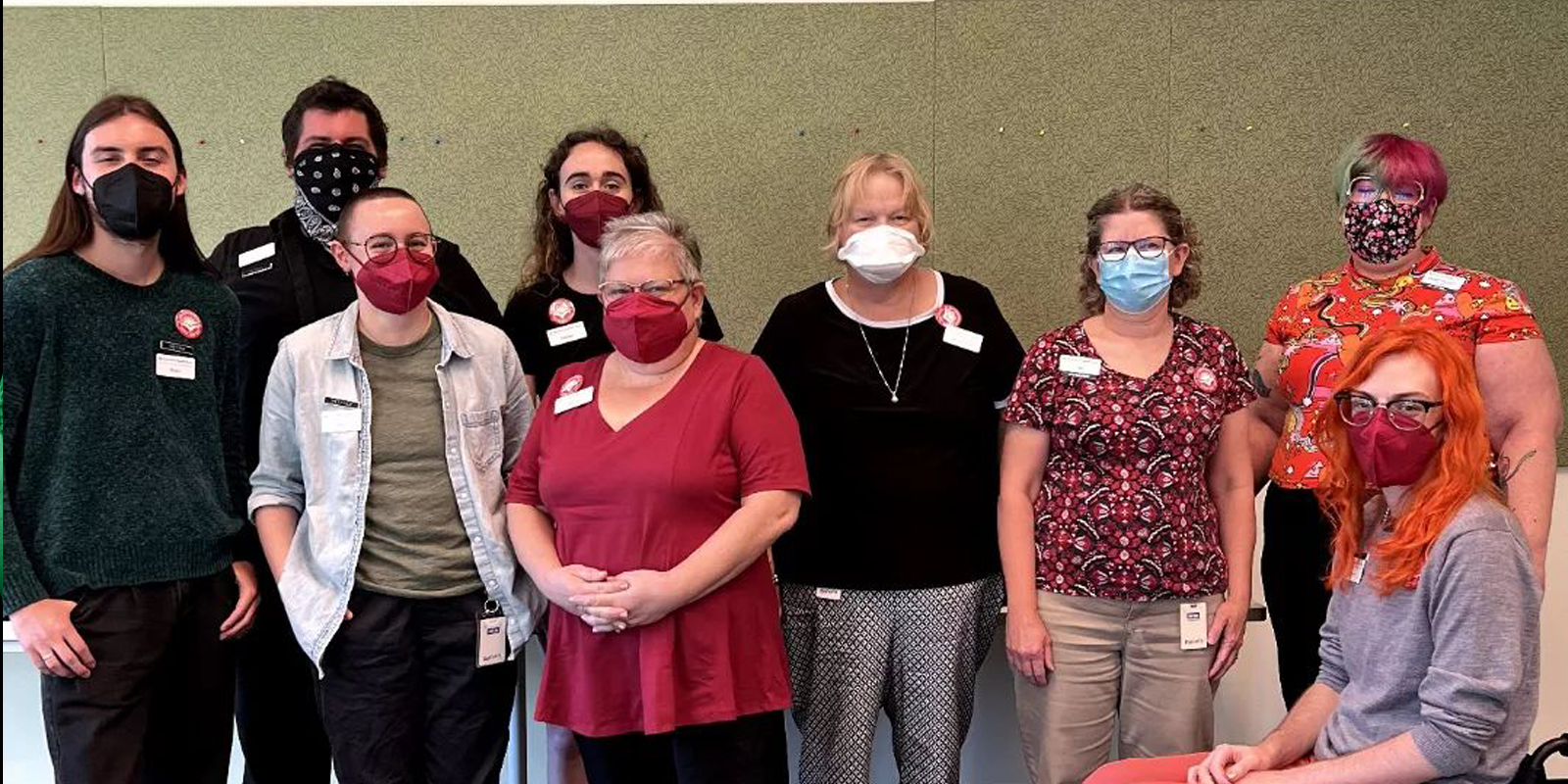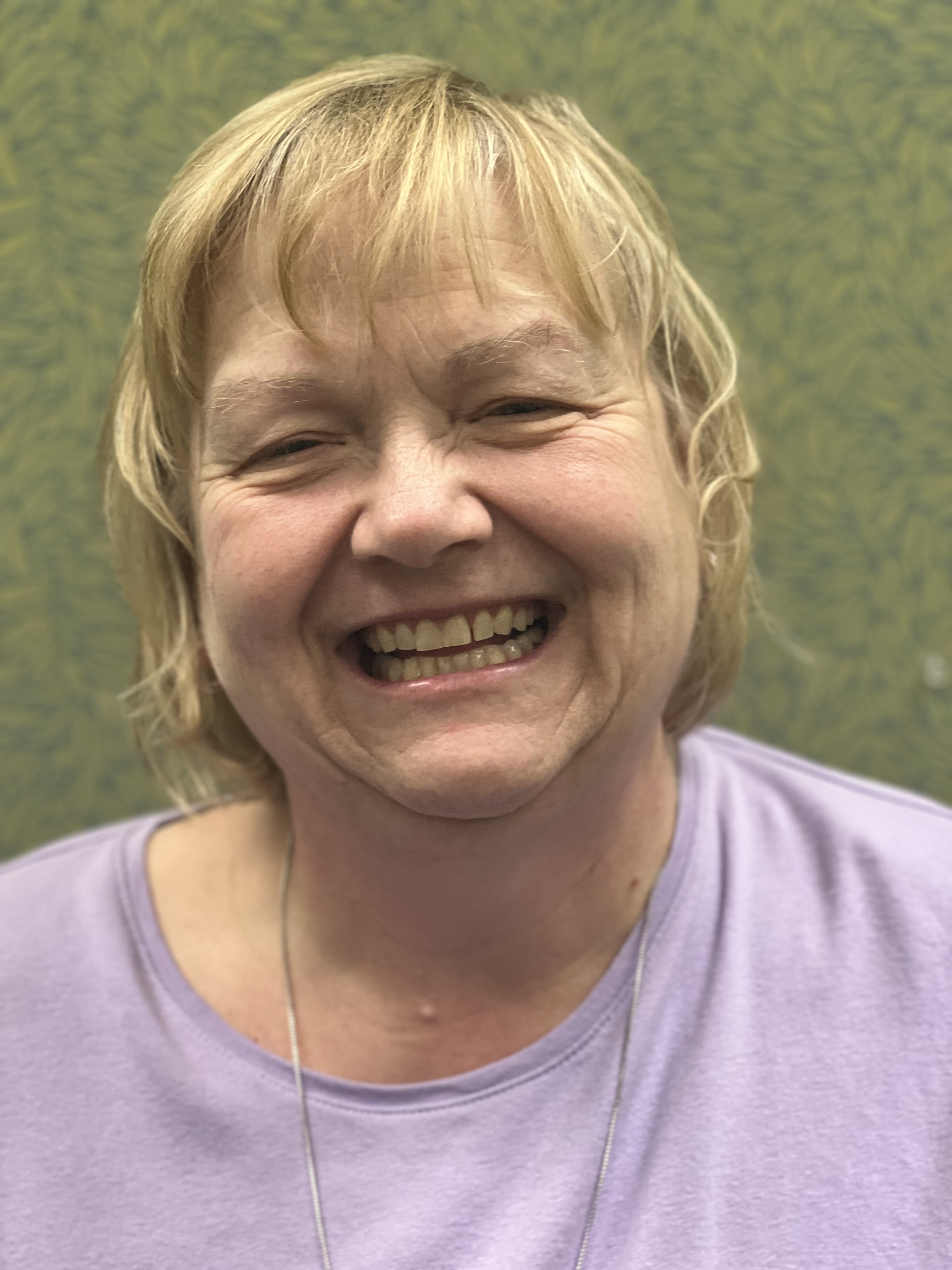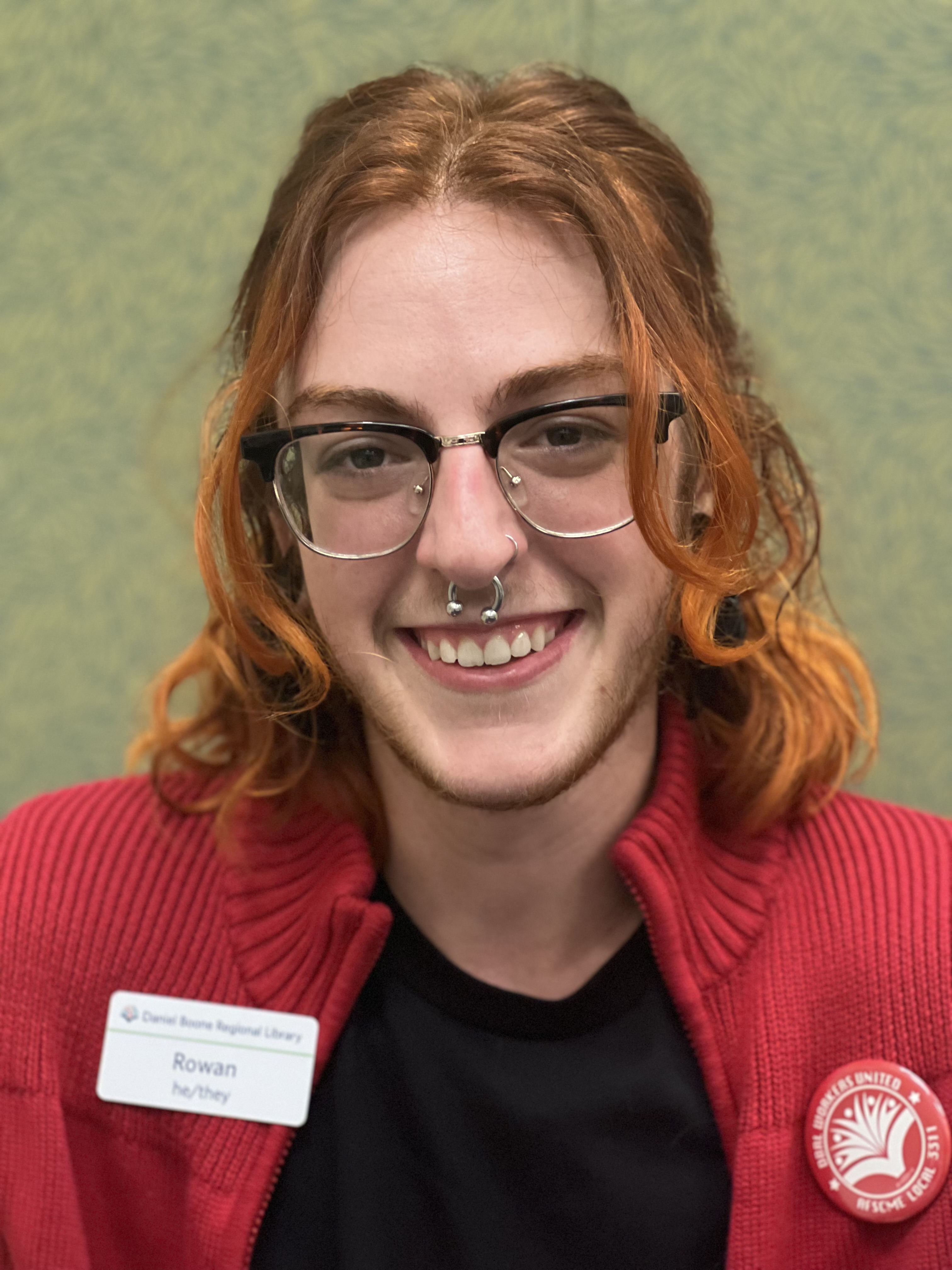COLUMBIA, Mo. – In recognition of National Library Week, AFSCME President Lee Saunders issued a statement honoring library workers’ hard work and underscoring their need for a voice on the job and a seat at the table to improve their working conditions and better serve their communities.
“These front-line heroes are facing both budget cuts and censorship threats that hurt their ability to protect their communities and preserve our freedoms. If that’s not enough, widespread staffing shortages are making library workers’ jobs harder than ever,” Saunders said. “This National Library Week, we must respond to this moment by continuing to organize for respect and dignity.”
Two Missouri library workers echoed Saunders’ sentiments and put a human face on the challenges facing library workers nationwide.
Rowan Walsh, a library assistant, and Carolyn Cain, a branch outreach lead, are among those who formed Daniel Boone Regional Library Workers United (DBRLWU) — the only library union in Missouri. Walsh and Cain, who are helping negotiate their union’s first contract with management, took a break from negotiations to discuss why they formed a union and what it means for them and other cultural workers in Missouri and elsewhere.


